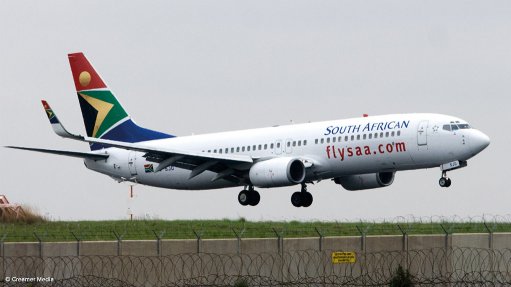
Photo by: Duane Daws
National carrier South African Airways (SAA) has been welcomed as a member of the Roundtable on Sustainable Biomaterials (RSB), the Swiss-based international multistakeholder initiative focused on biomass and biomaterial production and processing sustainability.
The national carrier on Tuesday said in a statement that the RSB membership provided a further networking platform for SAA to engage with nongovernmental organisations and leaders in the biomaterials field to progress and enhance its biofuels programme.
SAA’s biofuels project, initiated last year in partnership with Boeing, Sunchem and SkyNRG to covert tobacco oil to jet fuel, was currently being certified by the RSB.
“This [certification] underpins our efforts to develop a sustainable and ultimately commercially beneficial biofuel supply chain in South Africa.
“SAA intends to draw expertise, engage with and work together with global role-players in the biomaterials sector to extract maximum benefit from its activities and RSB membership,” SAA acting CEO Nico Bezuidenhout said on Tuesday.
The State-owned carrier aimed to operate a series of flights using biofuel later this year.
“Biofuels can be produced economically and the tobacco project, [based in Limpopo], evidences the significant progress made by research and development in this field over the past decade,” Bezuidenhout pointed out.
Earlier this year, SAA achieved the highest level of the International Air Transport Association Environmental Assessment (IEnvA), becoming one of only two airlines globally to progress to complete the Stage 2 assessment.
IEnvA is a voluntary, two-stage evaluation process designed to drive airline environmental performance improvements through independent assessment.
SAA, along with Finnair, implemented all of the IEnvA programme’s environmental standards, the identification and mitigation of the significant environmental impacts of the airliner's operations and the setting of performance targets.
This stage also certified that an airliner had developed processes for monitoring and reviewing its performance against its environmental targets and objectives.